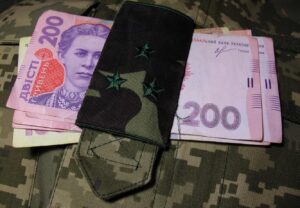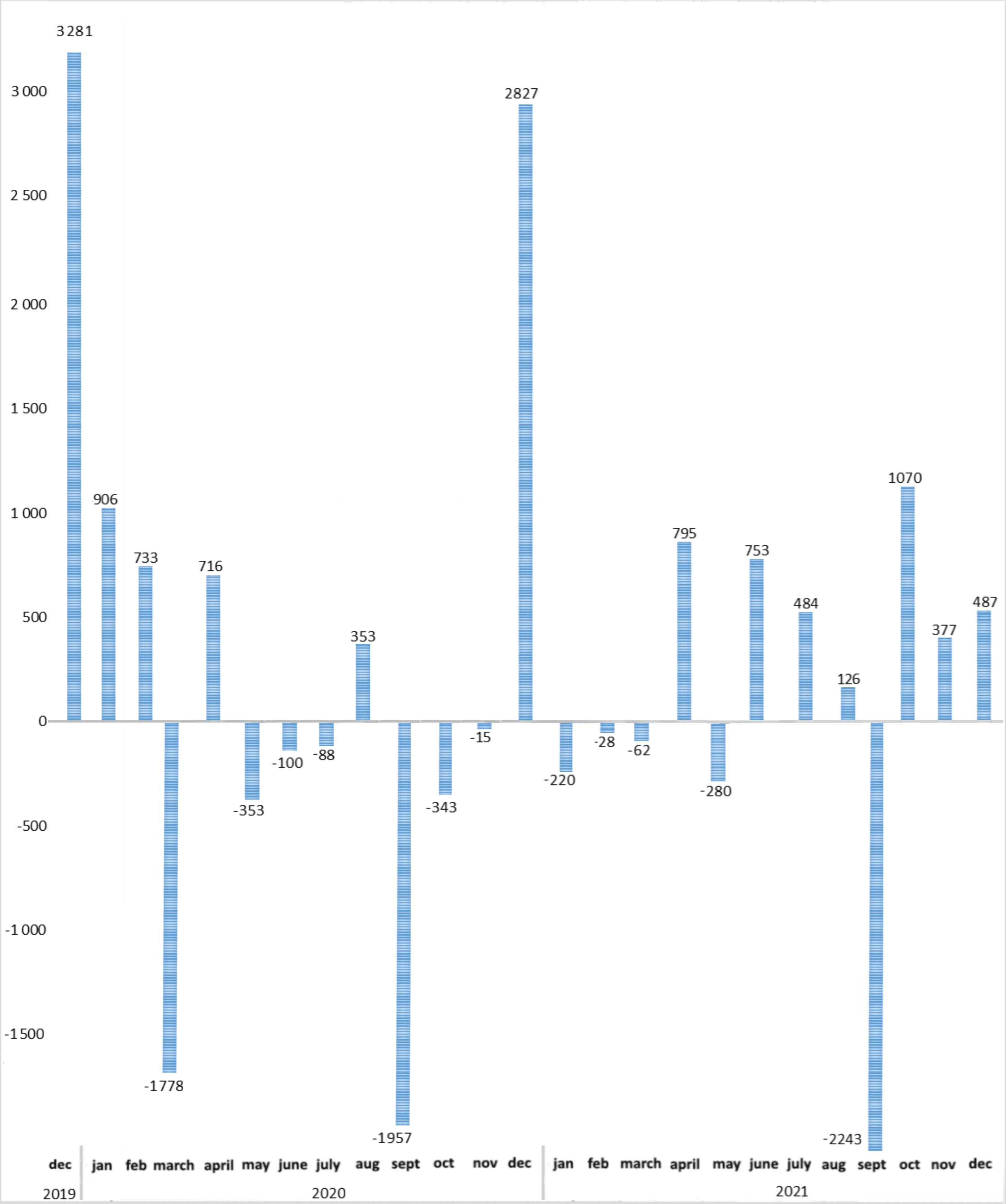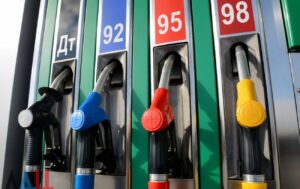
The flow to enter Ukraine through its western border for eight days in a row after May 9 exceeds the flow to exit, the total net inflow to Ukraine over these days amounted to 61 thousand people – these are record figures since the beginning of the war.
According to the State Border Service on Facebook, on May 17, more than 31,000 people left Ukraine, as the day before, while the number of arrivals in the country was 37,000 against more than 41,000 the day before.
The agency clarified that over the past day the number of registered vehicles with humanitarian cargo increased to 239 after falling to 150-190 in the previous two days.
According to the Polish Border Service on Twitter, on May 17, 26 thousand entered Ukraine from the country, while the day before – 26.8 thousand. In the opposite direction, the flow amounted to 20 thousand compared to 19.2 thousand the day before.
In total, as indicated by the Polish border agency, since the beginning of the war, 3.442 million people have arrived from Ukraine to Poland, and 1.358 million people from Poland to Ukraine.
According to the UNHCR, as of 13:00 on May 16, a total of 6.267 million people left Ukraine since the beginning of the war (excluding the entry flow), of which 3.377 million went to Poland, 977.91 thousand to Romania and Moldova, and 850 to Russia. .53 thousand, Hungary – 610.08 thousand, Slovakia – 424.03 thousand, Belarus (data for May 12) – 27.31 thousand.
At the same time, according to the State Border Service, 1.821 million people have entered Ukraine by this date since February 28.

The Ministry of Finance of Ukraine at the primary auctions for the placement of military bonds on Tuesday, May 17, was able to attract UAH 7.46 billion, which is 57.4% more than a week earlier, when the Ministry of Finance managed to achieve only partial refinancing of payments on earlier issued papers.
As reported on the agency’s website, this was possible due to the growth in sales of 18-month bonds, first offered last week: if then their sales amounted to UAH 87.2 million, then this Tuesday it was UAH 3.86 billion, and the number of applications increased from 19 to 29.
Almost the same number of bonds maturing in three months were sold as at previous auctions – by UAH 1.32 billion, while sales of six-month bonds decreased to UAH 2.27 billion from UAH 3.35 billion a week earlier, with a decrease in the number of applications from 46 up to 37.
Despite the call of the National Bank to think about raising rates, the Ministry of Finance kept the rates on all bonds at the same level: three-month – 9.5%, six-month – 10% and 18-month – 11.5% per annum.
Dynamics of balance of payments of Ukraine (USD mln)

NBU

Prime Minister Denys Shmyhal warns representatives of the fuel business against abuses in the market.
“Denis Shmihal stressed that due to the destruction of the oil refining infrastructure and oil storage facilities by the Russian aggressor, a shortage of fuel arose in Ukraine. The authorities represented by the Cabinet of Ministers, all central executive authorities, customs and border services fully support and help businesses to overcome this crisis in the fuel market. In particular, the state has already reduced VAT from 20% to 7% on gasoline, diesel fuel and liquefied gas and agreed on a zero excise rate for these items,” the government’s press service said following an online meeting between the prime minister and representatives of the fuel business.
Schmihal also said that he had negotiations on the liberalization of logistics routes with the President of the European Council, Charles Michel, and the President of the European Commission, Ursula von der Leyen.
“The European Union has introduced the so-called “corridors of solidarity” for Ukraine. A similar tool worked during a pandemic inside Europe, when vaccines and medicines were delivered. The authorities are doing and are ready to do everything necessary to give businesses the opportunity to import fuel into the country. At checkpoints, automobile and rail transport with fuel is given absolute priority. We are also negotiating other supply routes to expand our logistical capabilities,” the prime minister added.
The State Border Service also noted that vehicles with fuel pass the border from the Ukrainian side without queues.
Also, First Vice Prime Minister Yulia Sviridenko noted that the number of fuel trucks crossing the border every day has grown by almost a third compared to the beginning of May.
“Representatives of the fuel business, for their part, noted the high level of cooperation with the government and noted the importance of joint communication on the situation that is currently happening on the market,” the message says.
During a conversation with market participants, the head of government stressed that the main task is for people to have fuel and for there to be no abuses in the market. According to him, the state will respond to such manifestations in wartime.
Following the meeting, Shmyhal gave the task to the Ministry of Economy, together with the Ministry of Energy and the relevant association, to work out proposals to overcome the crisis in the oil market and eliminate the shortage of fuel.

The volume of electricity exports from Ukraine to the European Union can replace approximately 17% of the Russian gas consumed by European countries, the Ministry of Energy believes.
“According to our estimates, electricity from Ukraine can replace approximately 17% of Russian gas exported to the EU,” Deputy Minister of Energy of Ukraine Mykola Kolesnyk said during a speech at the 25th Gazterm-2022 conference held in Poland on May 16-17.
According to the ministry, Ukraine submitted its proposals to the European strategy REpowerEU, which provide for practical steps to use the export capacity of the Ukrainian energy system.
“The new REpowerEU strategy should provide clear solutions in three aspects: how to replace Russian energy, how to end Russian control over energy assets in Europe, and how to ensure that this situation does not happen again,” the official said.
At the same time, the deputy minister emphasized the need for decisive action by the governments of European states regarding the complete rejection of Russian energy sources, noting that Ukraine remains a reliable partner of Europe in the energy sector and is ready to make a significant contribution to the reliability of natural gas supplies to European countries.
In particular, he drew attention to the possibility for European companies to use half of the capacity of Ukraine’s underground gas storage facilities (about 15 billion cubic meters) for seasonal or strategic gas reserves, which Energy Minister Herman Haluschenko announced in early May.
As reported, the Ukrainian government plans to resume the operation of additional transmission lines with Poland for the export of Ukrainian nuclear energy.